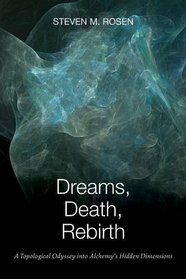Search -
Dreams, Death, Rebirth: A Topological Odyssey Into Alchemy's Hidden Dimensions
Dreams Death Rebirth A Topological Odyssey Into Alchemy's Hidden Dimensions
Author:
Our greatest certainty and greatest mystery is our mortality. In this book, Steven M. Rosen explores the profound mystery of death and rebirth from psychological, philosophical, and alchemical perspectives. To model, embody, and contain the paradoxical transformations involved in the death-rebirth enigma, Rosen employs a paradoxical form of math... more »
Author:
Our greatest certainty and greatest mystery is our mortality. In this book, Steven M. Rosen explores the profound mystery of death and rebirth from psychological, philosophical, and alchemical perspectives. To model, embody, and contain the paradoxical transformations involved in the death-rebirth enigma, Rosen employs a paradoxical form of math... more »
ISBN-13: 9781630510831
ISBN-10: 1630510831
Publication Date: 10/1/2014
Pages: 270
Rating: ?
ISBN-10: 1630510831
Publication Date: 10/1/2014
Pages: 270
Rating: ?
0 stars, based on 0 rating
Publisher: Chiron Publications
Book Type: Paperback
Members Wishing: 0
Reviews: Amazon | Write a Review
Book Type: Paperback
Members Wishing: 0
Reviews: Amazon | Write a Review
Genres:
- Science & Math >> Mathematics
- Medical Books >> Psychology >> Movements >> Jungian




